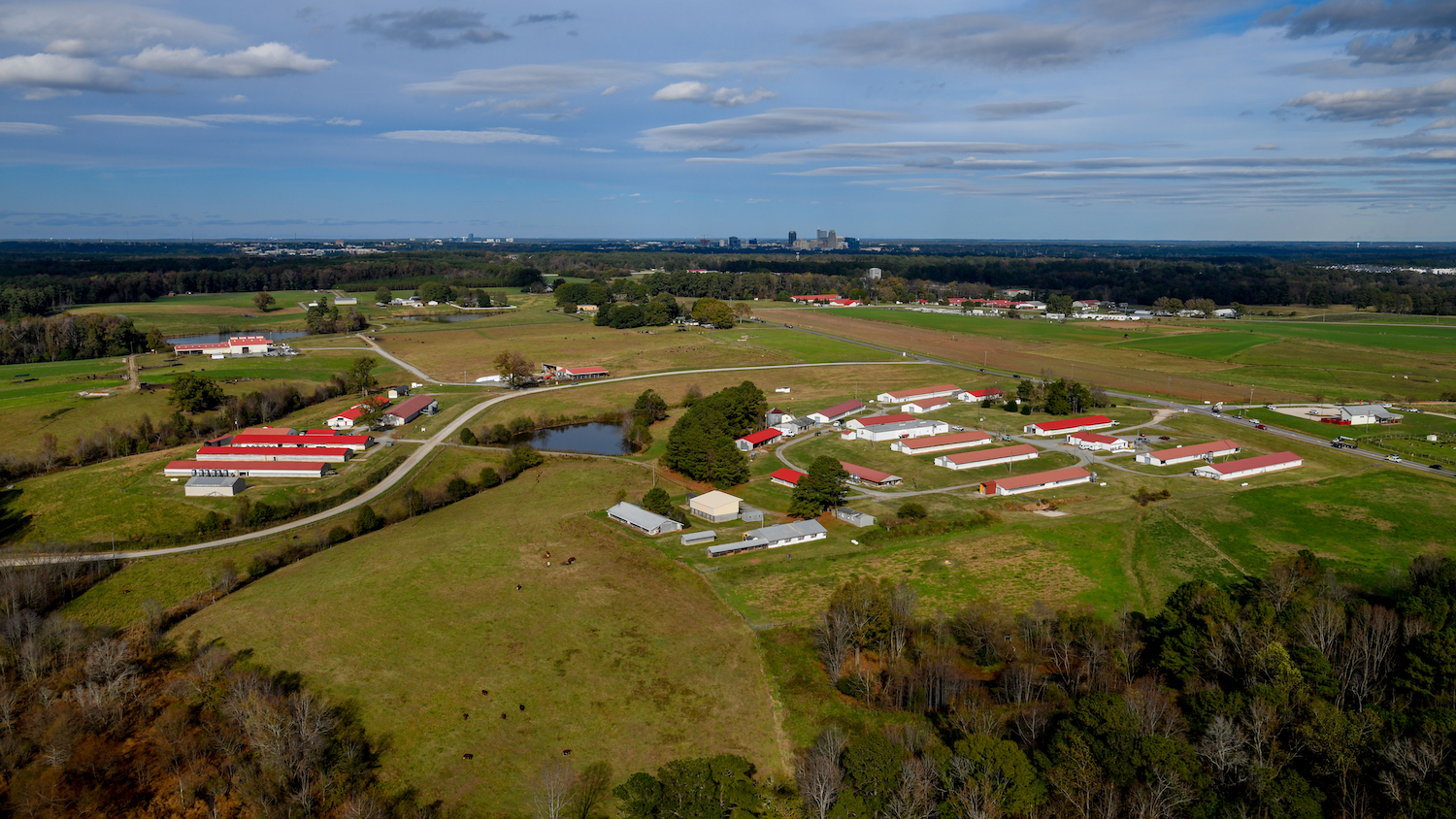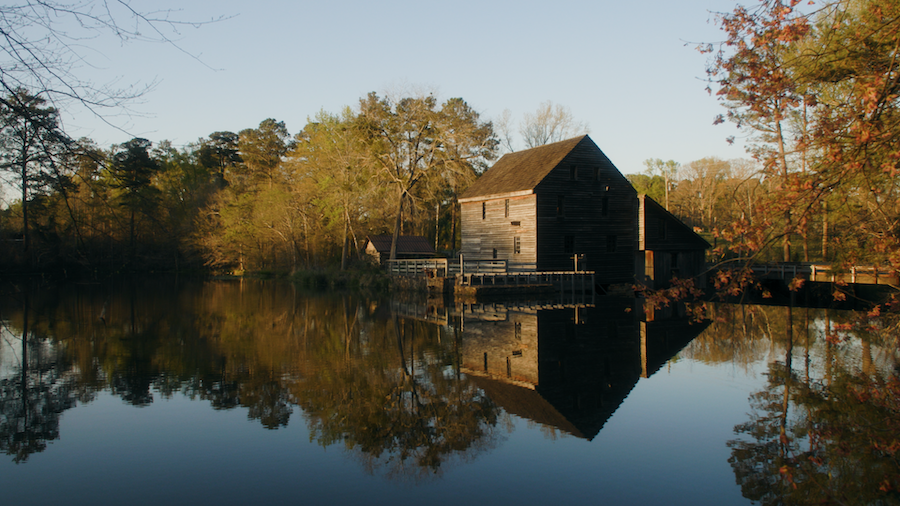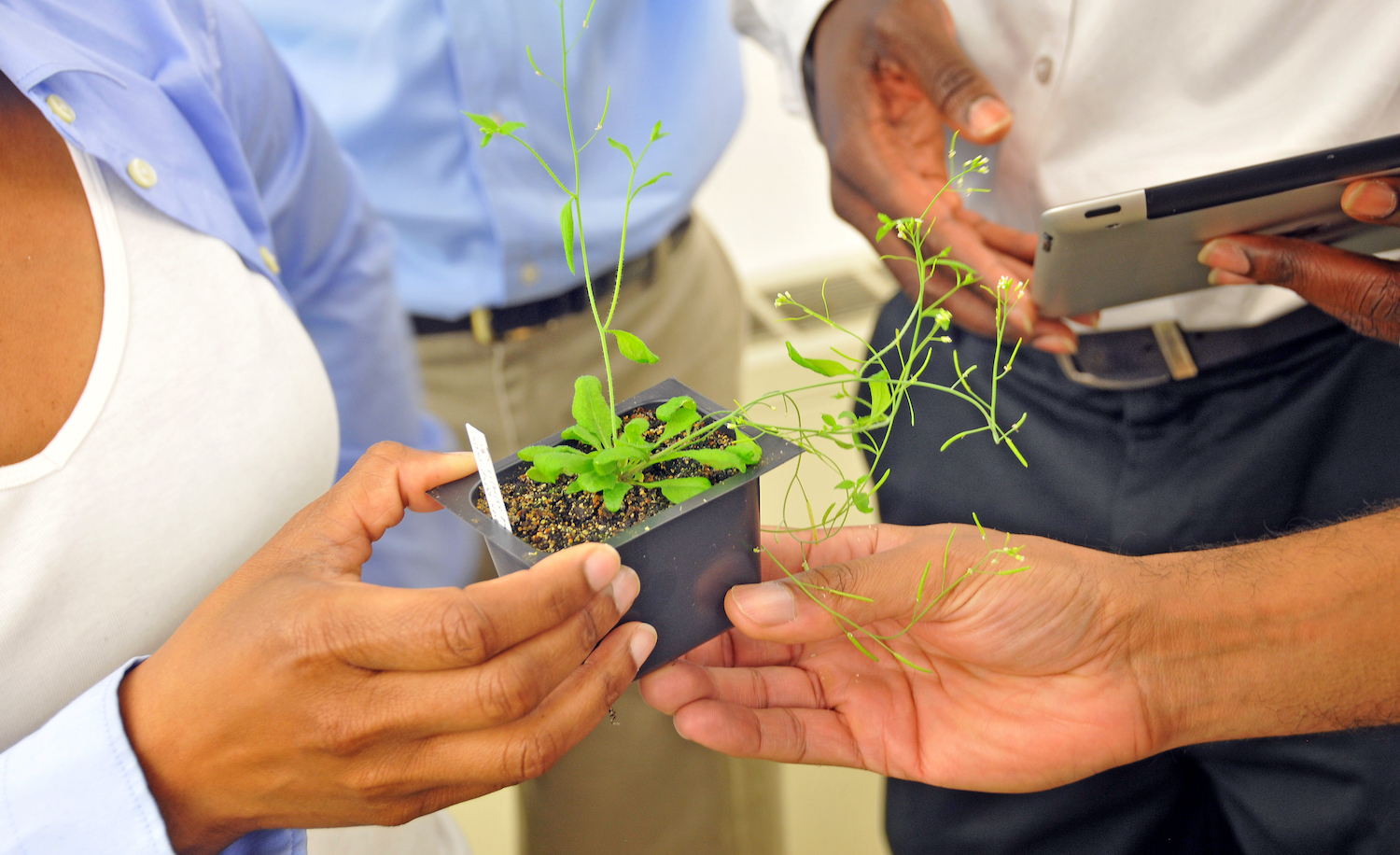Creating a New Narrative
Through research and education, graduate student Bhavisha Gulabrai hopes to create a new narrative about animal welfare and the animal agriculture industry.
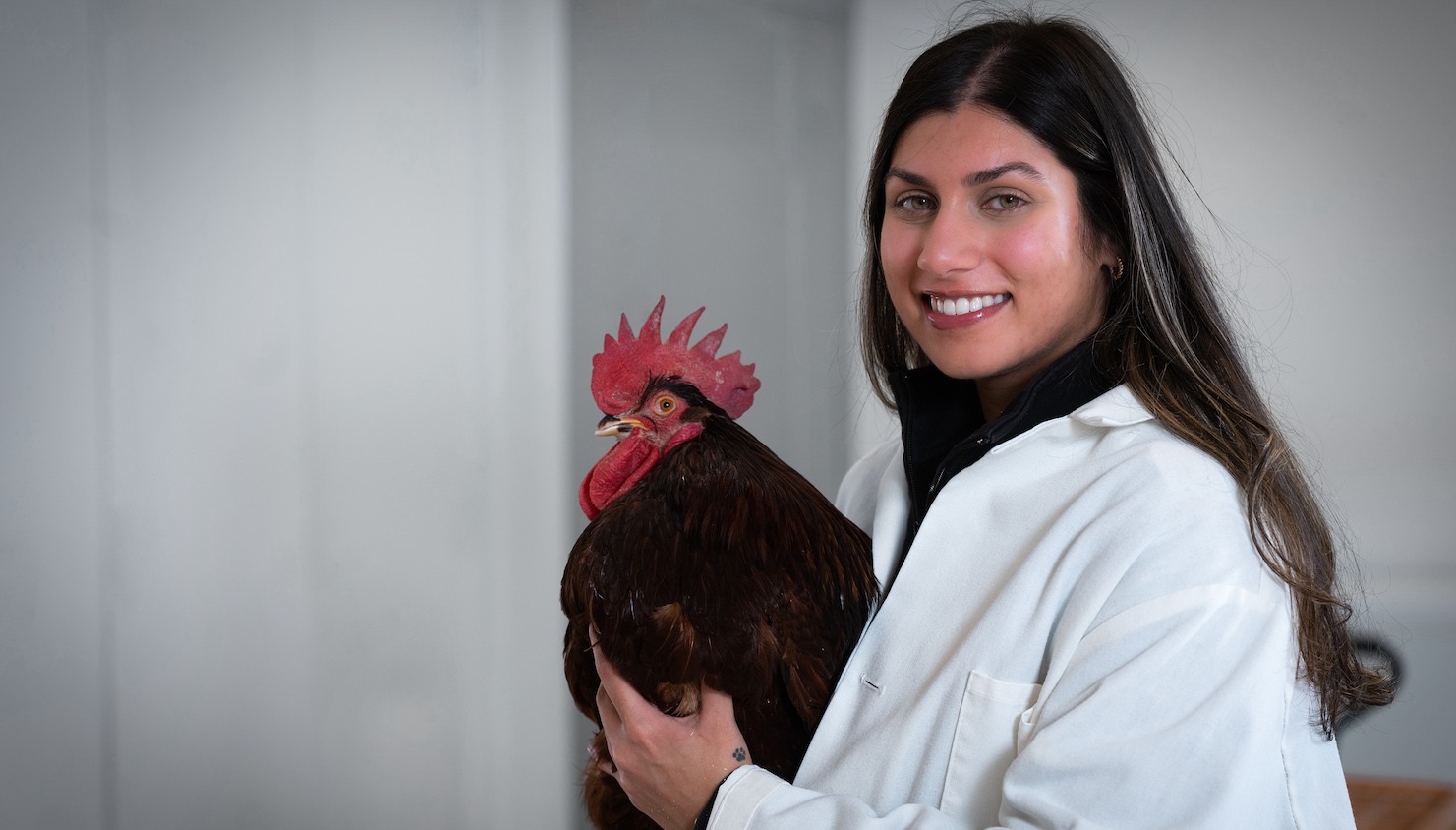
Animal welfare has been a hot topic for years, and it’s something Bhavisha Gulabrai is passionate about. As a graduate student in the Prestage Department of Poultry Science, she’s preparing herself to become an authority on the subject, educating outsiders about the realities of animal agriculture.
“My passion for animal welfare really stems from people’s negative perceptions of the animal agriculture industry. Through experience with livestock and poultry, I can understand why people who have never set foot on a farm don’t understand why farmers do the things they do,” Gulabrai says.
The Rocky Mount native always enjoyed taking care of animals and found a love for animal agriculture as a freshman in animal science at North Carolina State University and through internships. Gulabrai interned twice with Braswell Family Farms, a fourth-generation family-owned company that produces and markets eggs and livestock feed to families and businesses.
“I knew I wanted a career working with and helping animals, but I had only ever been exposed to the veterinary aspect of things. These internships introduced me to animal agriculture and to my passion,” Gulabrai says.
Gulabrai came to appreciate animal agriculture’s importance as a steady source of income for North Carolina. In fact, according to the 2020 National Agricultural Statistics Service, over 65% of state cash receipts from agriculture come from livestock, dairy and poultry producers.
Much of Gulabrai’s first internship focused on feed and nutrition for the animals, testing nutrient content and overseeing the feedmill operation. Her second internship focused on live production, quality assurance and monitoring overall bird health— including well-being.
As she pursues a master’s degree under Aaron Kiess, Braswell Distinguished Professor and poultry Extension specialist, Gulabrai is creating her own research project.
“I’m interested in doing a layer welfare study, basically measuring stress and behavioral parameters among different strains in cage-free environments to see how their welfare differs,” says Gulabrai.
“I would never be OK with animal cruelty or support an industry that is OK with that.”
Kiess sees a lot of promise in the graduate student.
“There’s still a lot of work to be accomplished, but if Bhavisha continues to exceed expectations like she has thus far, the end results will have real impact for the layer industry,” Kiess says.
Due to consumer demands, public perception and legislation like California’s Proposition 12, the Farm Animal Confinement Initiative, the commercial egg industry is shifting more toward cage-free production. Prop 12 was passed in 2018 and requires that covered animals be housed in confinement systems that comply with specific minimum standards for freedom of movement, cage-free design and minimum floor space. Gulabrai says there’s not much that can stop this shift, but welfare still needs to be measured in these types of environments.
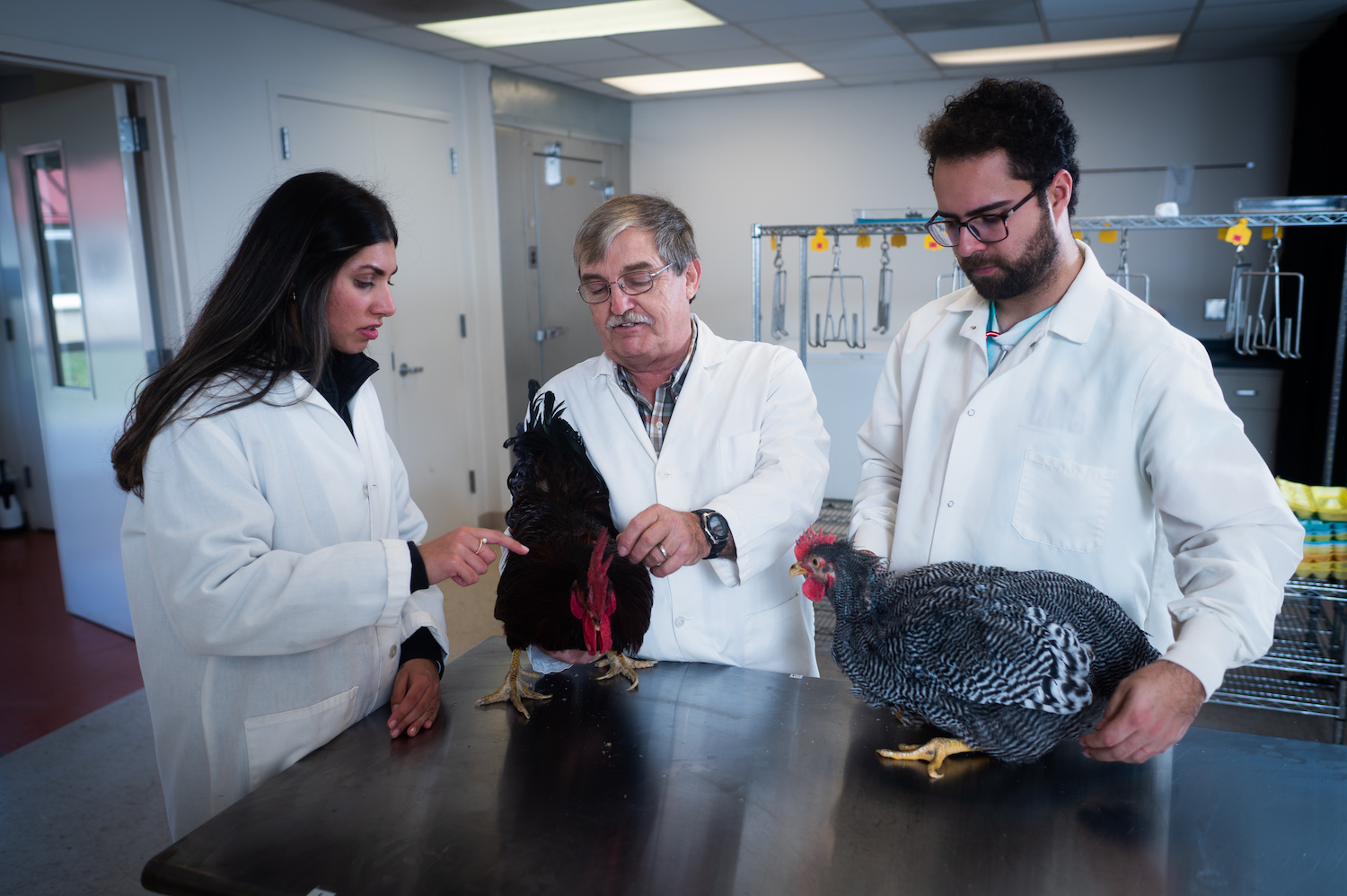
“I think it’s important for consumers to know that no production environment is going to be perfect,” says Gulabrai. “Genetic selection and management strategies are implemented in order to try to create the most optimal environment for these laying hens. However, just because cage-free environments have a more positive connotation, it doesn’t mean more work can’t be done in order to improve the well-being of the various strains that are put into these environments.”
Not having come from an agricultural background, Gulabrai has had to educate herself about the animal agriculture industry and form her own opinions about the industry and its practices based on what she’s seen and experienced firsthand.
“Anyone who knows me knows I love animals more than people,” Gulabrai says. “I would never be OK with animal cruelty or support an industry that is OK with that.”
- Categories:
